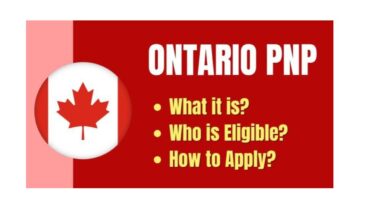How to Register a Business in Canada as an Immigrant
Canada is a good place to start up a business even as an immigrant. It is well known for its skilled workforce, strong economy, and access to government grants among others. As an immigrant, there are many options and benefits attached to starting a thriving business in the country. However, you may not have access to all the benefits unless your business is registered. Thus, you need to register your business with the appropriate authority and obtain any permits or licenses required for the business to legally operate. In this article, we would be unveiling how you can register a business in Canada as an immigrant among other information.
Registering a Business in Canada
It’s not enough to start a business in Canada, you should also register it to give your business the legal protection it needs. Noteworthy, every province in Canada has its own laws for business registration and the fees to be paid. Hence, the process of starting and registering your business in Canada depends on the province you intend to operate. This doesn’t mean you cannot register your business at the federal level too. One benefit of registering your business at the federal level is that you are free to operate your business anywhere in Canada regardless of the province. However, some provinces may still require you to register with them and pay some fees.
Before we proceed, it is expedient to mention that there are two visa programs for immigrants who wish to start a business in Canada.
1. Start-Up Visa Program
This visa program was designed to help immigrants to move to Canada and start a business. Note that to obtain this visa you must meet certain requirements depending on the types of businesses. Note that your business idea should be innovative, can create employment opportunities for Canadians, and can compete on a global level. You must also meet the Canadian language requirements and show that you have enough funds to settle in Canada.
2. Self-employed Persons Program
You can also immigrate to Canada and start a business through the Self-employed Persons Program, which majors in businesses related to the arts, entertainment, and sporting industries. However, you must have the relevant experience in cultural activities or athletics and plan to make a positive impact on cultural or athletic life in Canada. This is visa is a great choice for actors, musicians, and athletes. Your application would be evaluated based on experience, education, age, language ability, and adaptability, and would also go through medical and security checks.
Business Structure for Immigrant Entrepreneurs in Canada
In Canada, entrepreneurs have a variety of choices for business structures. When choosing how to set up a business, each of these choices has benefits and drawbacks that should be carefully considered. Some of these business structures would be discussed below:
1. Sole Proprietorship
The sole proprietorship is the business structure that is most popular in Canada. This is the simplest form of business structure and it is the default structure for many small businesses. In this kind of business, the individual is liable for all liabilities and debts. This implies that any debts or losses sustained by the business are the individual’s responsibility. This structure’s primary benefit is that it is simple to set up and manage. Note, that this business structure does not exist as a separate legal entity and the owner is usually taxed as an individual. Oftentimes, it is not registered with the government.
2. Limited Liability Company
The limited liability company, or LLC, is yet another common business structure. The owners are protected from personal liability for company debts, losses, and lawsuits under this type of business structure. Additionally, it permits the corporate rather than individual taxation of profits. The primary drawback of this structure is that creating the LLC involves extra filing requirements and expenses.
3. Partnership
In a partnership, two or more people each own a portion of the business and are held jointly and severally accountable for its debts and losses. There are numerous methods to structure partnerships, and they can offer specific tax benefits. The major drawback is that the partners are personally responsible for the debts and losses that the business incurs. A partnership is not a separate legal entity and partners are taxed individually according to their share of income.
What are the Documents Required to Register a Business as an Immigrant in Canada?
1. Proof of Identity
You must provide identity documents which may include a passport, driver’s license, or other documents that prove the identity of the immigrant.
2. Proof of Address
You must provide documents that show the address of your business and this may include a utility bill, lease agreement, or other documents that prove the immigrant’s place of residence.
3. Business Plan
You should submit your business plan to the authorities. Note that this is a written document that outlines the goals, strategies, and resources of a business.
4. Financial Statements
Financial statements provide a reflection of a business’s financial condition at a certain period and they are necessary to prove that the business has the resources to succeed in Canada.
5. Articles of Incorporation
An article of incorporation is a legal document filed with the government that officially creates the business. If you are registering a partnership, then you should provide the partnership agreement.
6. Tax and Banking Forms
These are required to register the business with the government and open a business bank account.
7. Insurance
Depending on the type of business, the immigrant may need to obtain insurance to protect the business from potential risks.
8. Licenses
In order to register a business in Canada, immigrants must obtain various licenses and permits from both the federal and provincial level
At the federal level, immigrants must obtain a business number from the Canada Revenue Agency (CRA). This requires completing the Registration of a Business Online form to register for a GST/HST account, payroll deductions account, corporate income tax account and import/export account, if applicable.
At the provincial level, immigrants must obtain business licenses and permits specific to the province. In Ontario, for example, immigrants must obtain a business name registration, a health and safety certificate, and a retail sales tax permit.
In addition to the above, immigrants must also meet the requirements of their respective provinces in terms of hiring foreign workers. Each province has its own rules and regulations regarding the hiring of foreign workers, and immigrants must ensure that they meet all of the requirements in order to operate their businesses in Canada.
How to Register a Business in Canada
1. Gather the Necessary Documentation
Before you start the business registration process in Canada, you’ll need to have some key documents on hand. This includes things like your business plan, a list of the assets and liabilities you have, a list of potential business partners, and a general description of your intended business model and other documents highlighted above.
2. Choose a Business Structure
The type of business structure you choose will make a big difference in how the business is taxed, how much paperwork you’ll need to complete, and the level of personal liability you may be exposed to. Some of the main types of business structures in Canada have been highlighted above. Ensure you choose the best structure suitable for your business.
3. Register Your Business Name
Once you’ve chosen your business structure, you need to register your business name. Every province and territory has a business registry, which is where you should go to register your business name. Each registry has a registration fee, so be sure to factor this into your budget. Sole proprietors usually do not need to register their names but in all other cases, you will need to register your name either as your legal corporate name or a trade name. However, before you register your name, make sure you choose the business name wisely.
Tips on Choosing a Business Name
• Choose a Suitable Name: Choose a name that reflects your brand and the product or service you offer. Ensure you choose a name that can be easily remembered and pronounced.
• Check whether the name has been taken: You would want to avoid legal issues and so you have to check if no one is using that name. You can easily search your proposed name on the internet and see if anyone is already using the name. You can also check national name databases which are Canadian corporate names and trademarks database and Canada’s business registries. You can also check trade names in other provinces and territories to see if your name is available in other provinces.
4. Get a Business Number
Your business may need a federal business number for identification. When you register your business in any of the following provinces, you will automatically receive your federal business number included in your provincial registration:
• British Columbia
• Manitoba
• Nova Scotia
• Ontario
• Saskatchewan
If your business is in another province or territory and you need a business number, you need to register for a business number at Canada Revenue Agency.
5. Obtain the Necessary Licenses and Permits
Depending on the type of business you are operating in Canada as an immigrant, you may need to obtain certain licenses and permits. These may include things like health and safety permits, zoning permits, and building permits.
6. Open a Business Bank Account
Opening a business bank account is an important step in registering your business in Canada. This will enable you to easily keep your business finances separate from your personal finances.
7. Apply for GST/ HST
If the expected turnover for your business is at least $30,000 or more every year, then you should apply for a GST/HST account. This is especially necessary so you can get the taxes to the refund you paid as a company.
What are the Financial Options for Immigrant Entrepreneurs in Canada?
Financial options for immigrants registering a business in Canada can vary significantly, depending on the type of business and the funding sources available. Overall, there are many financial options available to immigrants registering a business in Canada, however, immigrant business owners in Canada should consider any of the following three options:
1. Personal Savings
This is an easy choice for startups in Canada. The most typical method of getting the money required to launch a business is bysetting aside money for your business. Funds may be taken out of a personal savings account, a line of credit, a home equity loan, or a combination of these sources depending on the amount of capital needed.
2. Government Grants and Loans
The Canadian government offers grants and financing to business owners who want to launch or grow a business in the country. The Small Business Loans Program usually offers these grants and loans, which can vary in size from $2,000 to $1 million. Additionally, those who require extra funding to launch or grow their business can apply for loan guarantees from the Canada Small Business Financing Program (CSBFP) of up to $1 million.
3. Private Investors
For entrepreneurs who need assistance starting their businesses, private investors can be a wonderful resource. Private investors could be either people or businesses. They might agree to provide financial assistance in return for a portion of the company’s equity. Private lenders might also be eager to provide loans with favorable interest rates and repayment conditions.
Conclusion
Registering a business in Canada as an immigrant can be time-consuming and challenging but it is possible. There are a variety of resources available to help guide immigrants through the process, such as the Government of Canada’s Business Immigration Program and the Business Development Bank of Canada. Additionally, many organizations exist to provide networking opportunities, mentorship, and guidance. Though it may be a long and complex process, the benefits of owning a business and registering it as an immigrant can be substantial. With careful planning and an understanding of the necessary steps, an immigrant may be successful in launching their own business in Canada.




